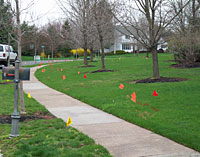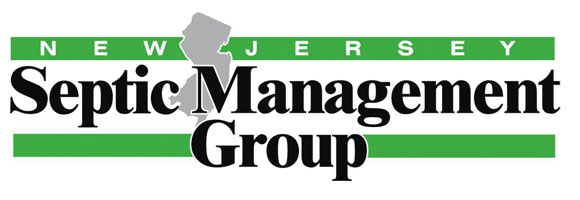Inspections
Septic System Inspections
Complete inspections are done for a number of reasons, most often relating to real estate (property) transfers. For home buyers, a thorough inspection can point out the need for repairs, maintenance or even a full replacement. For home sellers, a pre-listing inspection can ensure that there are no surprises once their home is put on the market.
NJSMG’s inspectors always perform and report all septic inspections to our high level of standards, as set by the NJ DEP. Our company has invested in the latest equipment and technology that will provide our customers with the most accurate information possible. GUARANTEED!
Our inspection report gives conclusive results. NO FOLLOW-UP IS NECESSARY.
Areas We Serve
Our Inspection Services are limited to the following towns: Annandale, Basking Ridge, Bernardsville, Bedminster, Belle Mead, Bridgewater, Branchburg, Cranbury, Flagtown, Flemington, Franklin Park, Frenchtown, Hillsborough, Hopewell, Lambertville, Lawrenceville, Millstone, Neshanic Station, Pennington, Plainsboro, Princeton, Princeton Junction, Ringoes, Skillman, Somerset, Stockton, Titusville, Warren (Somerset County), West Windsor, Whitehouse Station
If You are Buying a Home
- Don’t try to save money by using a less qualified inspection company.
- New Jersey Septic Management Group has inspected more than 10,000 homes.
- NJSMG can give you PEACE OF MIND, by determining whether the septic system in question, will be able to serve the future needs of your family.
NJSMG Protocol for all Inspections for Buyers
- Guarantees the inspection report within 2 business days.
- Follows the reporting standards of the NJ DEP.
- Will mark out all underground utilities, as required by law.
- Will ask each homeowner to fill out a maintenance history questionnaire.
- Will pump out the septic tank to check for any leaks or cracks.
- Will use a video camera to view underground pipes.
- Will open all distribution boxes (D Boxes).
If You are Selling a Home
A pre-listing inspection is important. Know the “Health” of your septic system before your buyer tells you how to fix it.
A second opinion or follow up inspection can confirm previous information or offer alternative professional conclusions (based on a more complete picture).
NJSMG Protocol for all Inspections for Sellers
- Guarantees the inspection report within 2 business days.
- Follows the reporting standards of the NJ DEP.
- Will mark out all underground utilities, as required by law.
- Will ask each homeowner to fill out a maintenance history questionnaire.
- Will pump out the septic tank to check for any leaks or cracks.
- Will use a video camera to view underground pipes.
- Will open all distribution boxes (D Boxes).
Key service provided by NJSMG

- Call to Mark-out Underground Utilities(as required by law): This is one of the most important first steps to take on the property in question. This ensures that no buried wires, cables or pipes will be damaged and no utilities (gas, electricity, cable or telephone) will be disrupted, whenever digging is involved. The under-ground utilities must be marked out, whether digging is done with a shovel or a machine.
- Review of Health Department Records: NJSMG always reviews the available records on file in the local or county Health Department, in order to find out what kind of septic system exists, when it was built, if problems were noted or if any repairs were permitted, inspected and approved. Copies of past inspection reports are also reviewed.
- Homeowner Authorization: NJSMG submits to the homeowner (or their agent) a written request for authorization to enter the property, for the purpose of conducting an inspection of the septic system. The same page also serves as a homeowner questionnaire, in reference to past maintenance history.
Preliminary (On-site):
- Site Conditions: Once on the property, we conduct an overview of the site, to determine if there are conditions which might have an impact on the operation of the septic system. Issues such as grading, presence of active water courses, proximity of trees and other excessive vegetation, impermeable surfaces such as driveways or walkways, down-spout extensions or the terminal end of a sump pump discharge line could all have negative effects on the septic system.
- Visual review of interior plumbing connections: Upon gaining access into the interior of the home, conducting an overview of the plumbing connections is important. It has to be determined whether or not all wastewater empties into one common septic system or if any individual plumbing fixtures discharge independently of main sewer drain line(s). For instance, the washing machine may discharge into a nearby slop sink, which then empties into a sump pump pit or possibly into its own exterior drywell.
There may be a complete separation of Grey-water (soapy wastewater) from Black-water (sewage) and each may discharge into separate tanks with a common disposal area or entirely separate septic systems. The interior plumbing review will determine whether there is a garbage disposal unit under the kitchen sink (which is not recommended for septic systems). It may also make note of a water softener device that discharges its back-wash into the septic system (which is very salty and highly corrosive to concrete components). If there is a finished, lower level, full bathroom or simply a wet bar, there may be an associated grinder / ejector pump which may require changes in the septic system. All found items, conditions and situations are recorded and related recommendations become part of the report.
